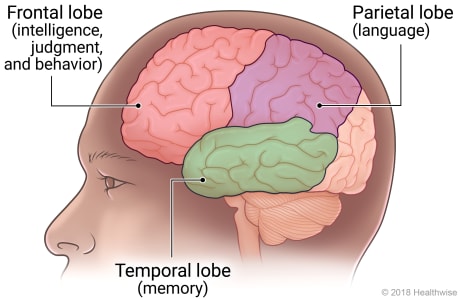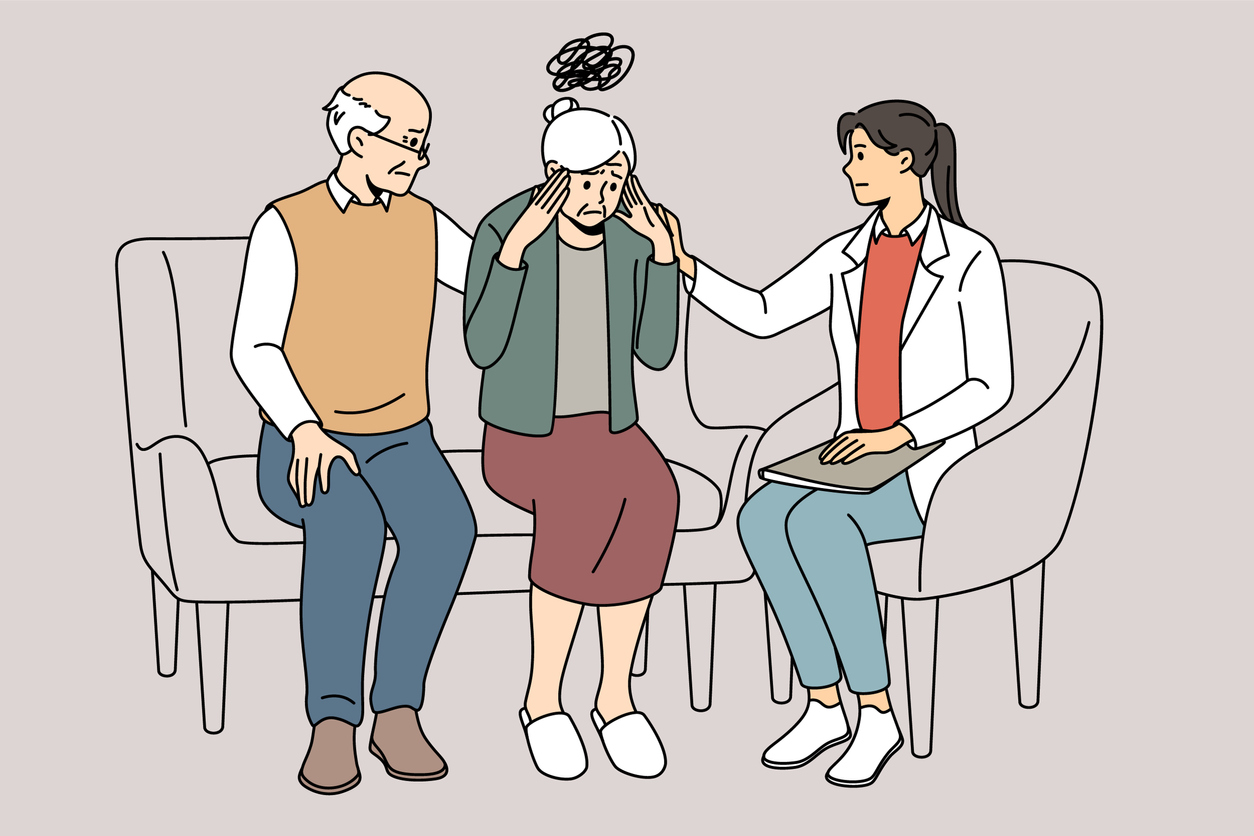The frontal lobe is a very important area of the brain. It is located just behind the forehead. It plays a crucial role in cognitive functions such as decision-making, problem-solving, and planning. The frontal lobe is also involved in controlling voluntary movements and in regulating emotions and social behaviors. This area’s highest functions, like organizing tasks, setting goals, and controlling impulses, are critical for thought processes and adaptive behavior. Any damage or dysfunction in the frontal lobe can lead to changes in personality, cognitive abilities, and motor skills.

(Image Credit: https://myhealth.alberta.ca/Health/pages/conditions.aspx?hwid=tp12408)
Dementia significantly impacts the frontal lobe. This leads to behavioral and cognitive changes. As time goes on, and dementia progresses, it can cause shrinkage of the frontal lobe which will disrupt its normal functions. This impairs executive functions, making it difficult for individuals to plan, make decisions, and manage tasks. Emotional regulation and social behavior can also be affected, resulting in personality changes, impulsivity, or inappropriate behavior. Memory issues, particularly those involving short-term memory and working memory, can become prevalent. The damage to the frontal lobe in dementia can impact an individual’s ability to navigate daily life and maintain independence.
The frontal lobe is a pivotal component of the brain, essential for managing cognitive tasks, controlling voluntary movements, and regulating emotions and social interactions. Its role in higher-level executive functions controls our ability to plan, make decisions, and adapt to our environment. When affected by dementia, the frontal lobe undergoes changes that disrupt these functions. The resulting damage impairs not only cognitive abilities, but also emotional regulation and social behavior, leading to challenges in daily living and personal independence. Understanding the impact of dementia on the frontal lobe explains the importance of ongoing research and support for individuals facing these cognitive declines, aiming to improve the quality of life.

(Image Credit: https://www.hopehealthco.org/blog/how-does-dementia-feel-a-new-training-builds-understanding-empathy/)

